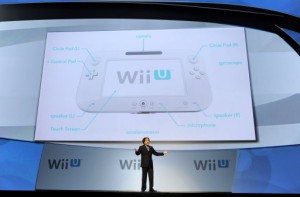
The discussions about next-generation consoles is picking up as Nintendo is almost ready to launch Wii U, while almost everyone is convinced that Sony and Microsoft are already developing high-end consoles even though they are yet to admit it publically.
The developers, on the other hand, are not too shy to admit that they are already working on projects for the upcoming high-end consoles.
Gearbox is no different in the sense that it too has come out of the shadows to boldly concede that it is has a number of projects that are in development. Gearbox CEO Randy Pitchford was careful not to give too much away during his recent interview with Gamasutra, but conceding that his studio has already started working with the latest technology is a sign that the next-generation consoles may not be too far away.
Without revealing anything about what platform the projects are being developed for and what technology is being used, Pitchford shared his excitement about the new wave of video game consoles that are in the pipe-line.
“I’m always excited by movement forward,” he said. “Some of that comes from iteration with our software, and some of it comes from iteration with hardware, and some of it comes from invention…each new step kind of gives us new tools and new capabilities that always makes the entertainment better, if we use it right.”
While some industry analysts are finding it hard to understand all the hype surrounding the next-generation consoles, others are pretty excited about the prospect of coming across a system that will be significantly powerful than the consoles currently available in the market. Remedy Entertainment shared its opinion about the new wave of high-end consoles, expecting them to be a “quantum leap” over Xbox 360 and PlayStation 4.
Even though the Gearbox boss did not out-rightly reveal anything regarding the power of the upcoming consoles, he did agree to what Remedy Entertainment had said about the new wave of consoles being quite powerful. Pitchford admitted that working with consoles possessing greater power capabilities allows a developer to be a bit more innovative and do things that they just could not do before because of the constraints of the platform.
“More power is always better. There’s always things we can do that we cannot do today that we can do with more power,” said Pitchford.
The suspense surrounding the power capabilities of the next-generation consoles is making both gamers and analysts even more anxious. However, Sony and Microsoft are adopting a similar strategy of remaining silent about their future console and when they plan on releasing it. Instead, they seem to be currently focused on extracting and displaying the potential of their current-generation consoles. Nintendo, however, is all set to step into the next-generation space with Wii U, which is expected to hit the markets this holiday season.